We first wrote about Resynergi at the beginning of the year, when the circularity-focused startup raised 6,4 million USD in a series B funding round and company officials stated they'll use the money to scale their plastic-recycling solution, which can rapidly convert plastic waste into a reusable alternative that's more eco-friendly.
Resynergi is a Californian company founded back in 2015 by Brian Bauer and Jason Tanne, with the purpose to turn plastic waste into a useful building block for the sustainable world of tomorrow.
The two cofounders started working together back in 2000 in telecommunications, with a company at the time called AFC, which was founded by John Webley. Jason then worked on a few startups, one of which was E-nergy, a company exploring green technologies. Following a series of successful exits, the three telecom specialists turned to sustainability. Thus, Brian and Jason cofounded Resynergi, while John became a key advisor for the company.
Jason's study background in chemistry came in handy for the development of Resynergi and the plastic recycling solution offered by the company. Also, Brian explored alternative energy at Stanford University while working on his Mechanical Engineering degree, which again helped with developing the technological solution.
An innovative solution for recycling plastic waste
After debating on multiple ideas for the next cleantech startup, the founders started the journey of recycling plastic waste streams.
"This approach addresses the big challenge of global plastic waste. What makes it so attractive is the valuing of waste plastic which drives actual collection, and hence cleaning the environment", Brian Bauer, Resynergi CEO told Green Start-Up.
Resynergi uses a technology called Continuous Microwave Assisted Pyrolysis (CMAP) in order to process plastics and turn these polluting materials into new, sustainable alternatives. The Californian company already collaborates with recycling organizations to get constant streams of hard-to-recycle plastics, such as polypropylene and polystyrene, which are among the 60% of the most common types of plastics that are being produced.
Photo source: Resynergi

As per the experts at Resynergi, the CMAP technology can process and convert plastic waste into reusable products 20 times faster than traditional pyrolysis methods, while also generating new materials with a 68% lower carbon footprint.
Brian explained that the most time-consuming process was getting the funding required to build the one-ton processing unit. Working and developing from there, the company is now able to replicate and scale the most successful processes using its 5 ton-unit.
The new 5-ton recycling unit can produce as much as 4,163 liters of oil from plastic per day, while in a year that would equate to over 1,32 million liters.
"There are some additional challenges, but we've learned enough along the way to address those and move on in a timely manner. Teaming with Dr Ruan and the University of Minnesota greatly accelerated our time to market", he said.
Turning recycled plastic into a diesel alternative
Back in 2022, Resynergi was able to turn recycled plastic into sustainable fuels, mainly diesel, at its plant in Santa Rosa. At the time, Bauer said that the eco diesel generated by his company can go straight into the cars' tanks, while releasing up to 60% less carbon emissions than conventional diesel.
As far as recycling the plastic, Resynergi officials say that the most challenging thing to do is breaking down the plastics and converting them into a usable alternative. This, they say, requires "excellent and complete heating of the plastic. Uniform heating is a continuous fashion is key to the patent and successful plastic breakdown."
Brian also told us how the CMAP technology works. He says that "the plastic is shredded and turned into small pellets. These are exposed to microwave heating that breaks down plastic molecular chains, which become gas, and when cooled, condenses to oil."
Microwave energy is doing its magic here, breaking down the plastic faster and more efficiently at its molecular base, resulting in an oily substance.

"Once the oil is made, it can be used to convert to pure plastic. This is much better quality than mechanical recycling as it is pure plastic", Bauer added.
The resulted oil can be used for manufacturing polyethylene and polypropylene products, which represents over 50% of the plastic products around the world.
By using solar energy to power the system most of the time, the carbon footprint associated with Resynergi's method of processing plastic is reduced by 68% compared to normal recycling alternatives.
Funding and plans for the future of recycling plastics
As Resynergi recently raised 6,4 million USD in its Series B funding round, the startup looks to extend the funds by another 1,1 million, Brian told us, reaching a maximum of 7.5 million USD.
The additional funding could help the company expand its production through new sites, scaling its technology further.
With the proven success of the one-ton unit, Resynergi now looks to focus on its 5 tons machinery, which will help the company generate its first streams of revenue.
Resynergi CEO Brian Bauer said that "we’re accelerating plastic circularity with our technology. By diverting plastic from our landfills and oceans we’re on a mission to protect human health and our environment."
Photo source: Resynergi
 Mihai - Cristian Ioniță
Mihai - Cristian Ioniță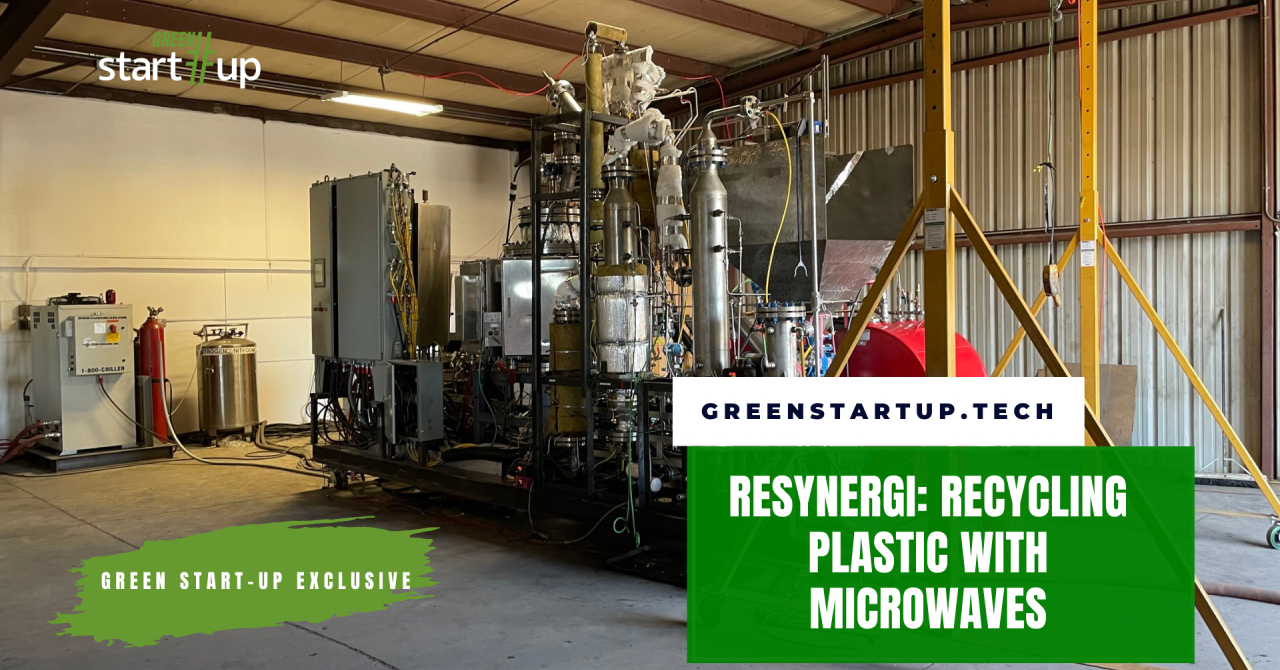

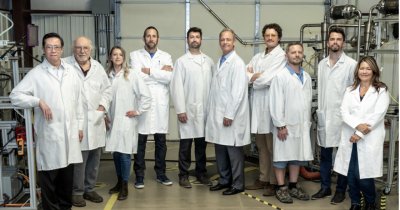
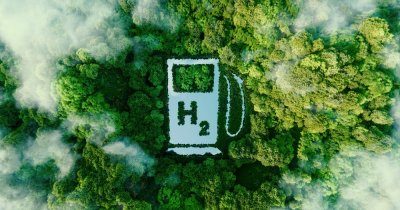

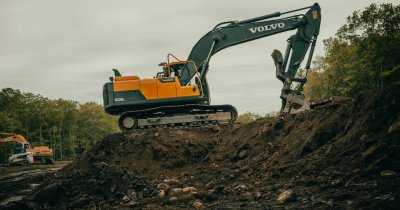
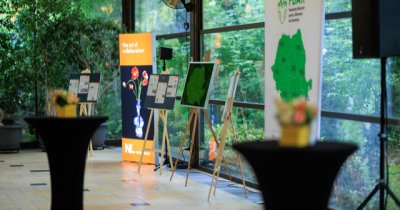
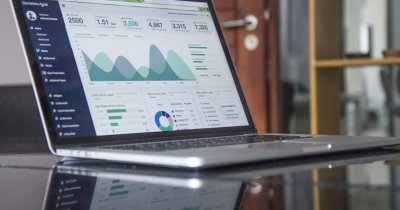





Any thoughts?